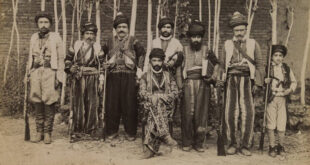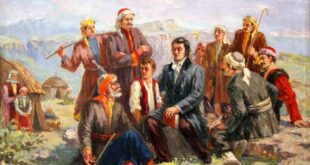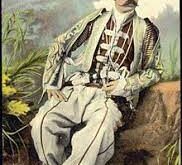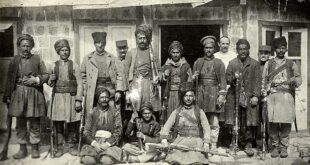Ramzi Nafi or Ramzi Nafi Rashid Agha(Kurdish: رەمزی نافیع ئاغا; Latinized: Ramzî Nafî Reşîd Aghâ) (1917-1949) was a Kurdish National Socialist. As one of the most controversial figures in recent Kurdish history, his involvement in the failed Operation Mammut has earned him high reputation in Kurdistan.

YouthEdit
He attended primary school for about six years and secondary school for three years in Erbil. He then went to the local high school in Kirkuk for a year. In Kirkuk, Ramzi joined the far-right Hîwa(Hope) party. Ramzi then attended a central science-oriented high school in Baghdad.
Later, before finishing high school, he was forced to flee the city for political reasons and go to Beirut. He remained in Beirut from October 1941 to March 1942. Ramzi entered the American University of Beirut as a freshman and was perceived by many students and faculty as being very combative and hostile to the British. In Beirut, he met with Kamuran Alî Bedirxan, Nûredin Zaza and some active figures in the Xoybûn at that time, and joined the Kurdish nationalist Xoybûn Party, which strived for an independent Kurdish state. Thanks to his success and his diploma from the American University of Beirut, Ramzi Nafi transferred to the Turkish Agricultural College in Ankara.
Operation Mammoth
Pre-Operation
Shortly after his arrival in Ankara in 1942, Ramzi Nafi contacted several members of Nazi Germany‘s military intelligence unit, the Abwehr, which consisted of some well-known and experienced military tacticians, spies and trainers. They met with Ramzi Nafi in a cafe and discussed the possibility of creating a roadmap-like plan for Kurdish unification in exchange for Kurdish uprisings against the British occupying the Kirkuk oil fields.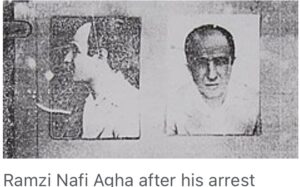
The mission failed on the first day. The weapon and equipment cases were lost in the parachute drop and the group landed 300 km from the intended target. 12 days later the British arrested the actors. Ramzi and the German officers were taken prisoner by the British and Iraqi, tortured and tormented. The German participants were shipped to a British military camp in Germany in 1947 and later released. Ramzi received life imprisonment.
The Kirkuk-Haifa Pipeline, which from 1935 routed Iraqi oil to refineries near the Mediterranean city of Haifa and which Time Magazine on April 21, 1941, described as the “jugular of the British Empire” as well as the Kirkuk-Tripoli pipeline branching off at Haditha,formed the backbone of the Western Allies‘ warfare in the Mediterranean, and their loss would have had a decisive impact on the further course of the war.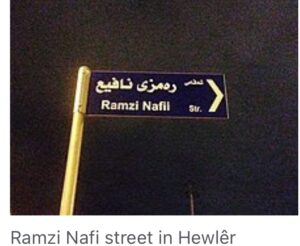
 History of Kurdistan
History of Kurdistan
